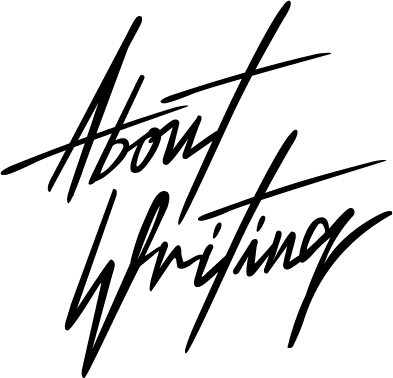
‘Writer’s Block’ is a huge topic. Since graduating from university in 2012, I’ve spent most of my time writing in isolation, and writing a lot. I only realised that writer’s block was affecting a lot of writers out there when I joined the online writing communities when I launched the About Writing blog last year.
I hadn’t planned on covering it. And I wouldn’t have written this post unless I had something different and useful to offer. This is an opinion piece, and I’m sharing it because I think it will help. I want to say that writer’s block isn’t something we should admit.
If there are reasons you’re not writing, you need to understand what those reasons are. The symptom is the same, and you’re not putting words on a page, but I would recommend that you don’t describe it as ‘writer’s block.’
Why don’t I like the term ‘Writer’s Block’?
Admitting you have writer’s block solves nothing. Instead, if you identify why you’re not writing, you’ll be in a better position to overcome the ‘block’ and put words on a page again.
It’s far more useful to understand that you’re suffering from perfectionism and then find some specific, instructional advice. Or from a lack of confidence, perhaps, and then you could try writing something to share with a trusted friend or someone who enjoys your writing. Or you could write for yourself. So many things can keep a writer from creating. If you’re experiencing one, please name it. Then you can kill it.
My Story
I’m lucky to have studied Creative Writing, learning from outstanding teachers. It forced me to write every day for three years. It was a pleasure, but there were still times I felt low and unmotivated. I lived in a cheap and noisy house, with walls so damp that several of my books got spoiled. I had no money, and I was always cold in winter. Sometimes I had headaches and no interesting ideas.
And even on the worst days, I wrote. I looked out of the window and wrote about the people that walked by. I set myself challenges, like writing about my previous day as though it were fiction, rewriting stories from different perspectives, and learning to take inspiration from everyday objects. In fact, the first chapter of my novel, The Little Movements, is titled Table Mats, and I wrote that chapter as a writing challenge I set myself. I wondered how much I could reveal about a couple’s relationship and history through a conversation about a mundane item.
And it became a novel that a publisher picked up.
So, f—k writer’s block!
When you know how to write, you can write about anything and make it interesting. You can work with prompts, try writing experiments, and condition yourself to write no matter how you feel.
Arm yourself with more writing techniques and the ability to write in different genres and forms (novels, scripts, non-fiction, memoir, plays, short stories, flash fiction, poems, etc.). Also, practice more writing experiments (like Goldberg’s ‘first thoughts’), read books that challenge you, fill your social media feeds with content from fellow creatives, subscribe to my blog and other writing blogs, and write.
I’m not saying that it’s easy. But if you ever feel uncreative and unproductive, please delve deeper and find the actual thing that’s blocking you. You will overcome it in no time.
And don’t keep it to yourself. Talk to your family and friends, and get in touch and talk to me if you like. I know the importance of a supportive, creative community, and I’d love to be there for writers who need it!
